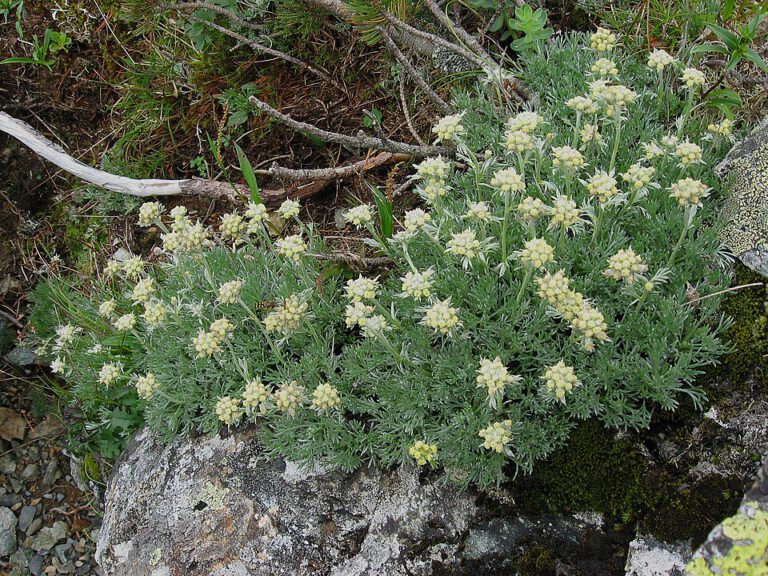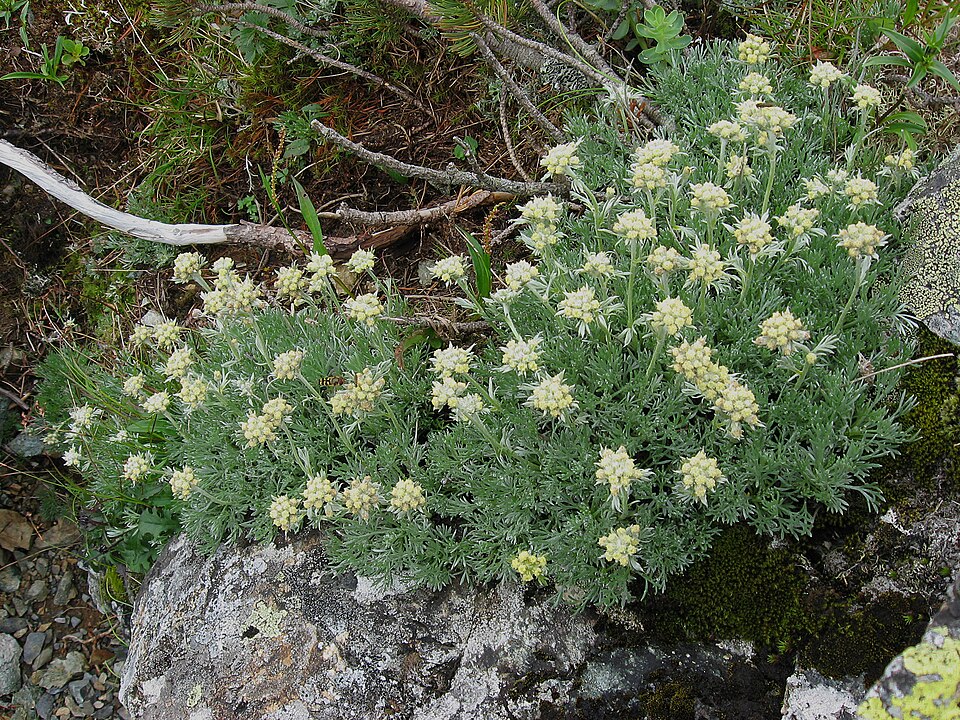Pacific Alpine Wormwood: A Hardy Native for Cold Climate Gardens
If you’re gardening in one of the coldest regions of North America and looking for a tough, native perennial that can handle whatever winter throws at it, meet Pacific alpine wormwood (Artemisia glomerata). This resilient little plant might not win any flashy flower contests, but it’s got character, history, and the kind of no-nonsense attitude that makes it perfect for challenging growing conditions.
What is Pacific Alpine Wormwood?
Pacific alpine wormwood is a perennial forb—basically a non-woody plant that comes back year after year. Like other members of the Artemisia family, it’s got that distinctive silvery-gray foliage and aromatic scent that says I mean business. This isn’t your typical garden center perennial; it’s a specialized native that’s perfectly adapted to life in some of North America’s most challenging climates.
Where Does It Call Home?
This hardy native makes its home in Alaska and Canada’s Yukon Territory, thriving in arctic and subarctic conditions that would make most garden plants wave the white flag. It’s naturally found in areas where the growing season is short, the winters are brutal, and only the toughest plants survive.
Why Consider Growing Pacific Alpine Wormwood?
Here’s the thing—if you’re gardening in USDA zones 1-4, your plant options can feel pretty limited. Pacific alpine wormwood fills a unique niche:
- Extremely cold hardy (we’re talking survive-an-arctic-winter hardy)
- Native plant that supports local ecosystems
- Drought tolerant once established
- Low maintenance requirements
- Aromatic foliage adds sensory interest
- Attracts small beneficial insects with its tiny flowers
Garden Design and Landscape Role
Pacific alpine wormwood isn’t going to be the star of a cottage garden border, but it’s perfect for specific landscape situations. Think alpine gardens, rock gardens, or naturalized areas where you want to recreate the feel of arctic tundra. Its silvery foliage provides nice contrast against darker rocks or evergreen plants, and its compact growth habit makes it suitable for smaller spaces.
This plant works best in gardens that celebrate tough, native plants rather than trying to create something that looks like it belongs in a warmer climate. It’s ideal for gardeners who want to work with their local conditions rather than against them.
Growing Conditions
Pacific alpine wormwood has some very specific needs that reflect its arctic origins:
- Sunlight: Full sun is essential
- Soil: Well-drained soil is absolutely critical—this plant won’t tolerate wet feet
- Water: Minimal watering once established; actually prefers dry conditions
- Climate: Thrives in cold climates (zones 1-4)
- pH: Adaptable to various soil pH levels
Planting and Care Tips
Growing Pacific alpine wormwood successfully is all about recreating its natural habitat:
- Plant in spring after the last frost
- Ensure excellent drainage—consider raised beds or rocky slopes
- Space plants appropriately for air circulation
- Water sparingly; overwatering is more dangerous than drought
- No fertilizer needed—this plant is adapted to lean soils
- Seeds may require cold stratification to germinate
Wildlife and Pollinator Benefits
While Pacific alpine wormwood might not be a pollinator magnet like some showier natives, its small, clustered flowers do attract various small insects and flies. In its native range, it’s part of the ecosystem that supports arctic wildlife. For gardeners, it’s one piece of creating habitat that reflects the natural plant communities of the far north.
Is This Plant Right for Your Garden?
Pacific alpine wormwood is definitely a specialty plant. It’s perfect if you:
- Garden in zones 1-4
- Want to grow native plants
- Have well-drained, sunny conditions
- Enjoy alpine or rock garden aesthetics
- Prefer low-maintenance plants
However, it might not be the best choice if you’re looking for showy flowers, live in a warm climate, or have heavy, poorly-drained soil.
The Bottom Line
Pacific alpine wormwood might not be everyone’s cup of tea, but for gardeners in the right climate who appreciate tough, native plants with real character, it’s a gem. It’s a reminder that beautiful gardens don’t always need to be about the biggest, showiest plants—sometimes the quiet, resilient ones that truly belong in your landscape are the most rewarding to grow.
If you’re ready to embrace cold-climate gardening and work with nature rather than against it, Pacific alpine wormwood might just be the perfect addition to your arctic-adapted garden.




